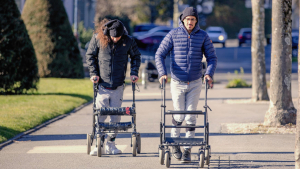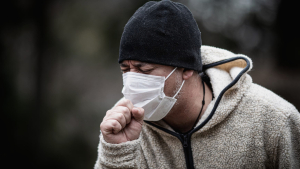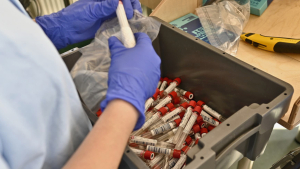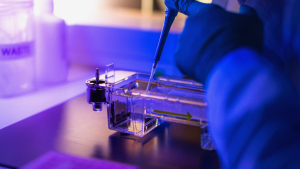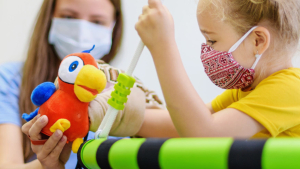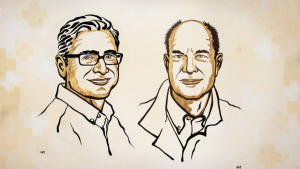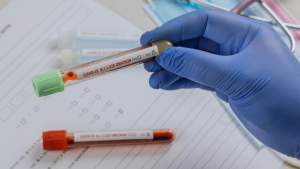"Don't talk to me before I had my first coffee!" Many people can hardly imagine without starting a cup of the hot drink into the day. The fragrance, the warmth, the short breath - all of this is somehow part of it. A look at the numbers shows how popular coffee is: more than 160 million bags of coffee are currently consumed every year. The European Union is one of the greatest sales markets. According to the German Coffee Association in 2020, every German citizen drank an average of 168 liters of coffee in Germany - this corresponds to 1344 cups of 125 milliliters each, which is about three and a half cups a day.
At the same time, however, the morning coffee ritual is often accompanied by a guilty conscience. After all, the drink can harm the cardiovascular system, rob you of sleep and make you shivering. Or is it?
In fact, many things that we believe to know about coffee belong to the realm of myths. Recent studies suggest that the hot drink could even have a positive effect on health. So what is really true?
A Challenge in Coffee Studies
Nutrition studies often take place at the population level. This means that many thousands of people are asked about their behavior and their health, and then the data is statistically evaluated. For example, numerous studies from 1960 onwards came to the conclusion that coffee drinkers suffer from cancer more often than average. But let's imagine what an office routine used to look like: next to empty coffee cups were ashtrays filled to the brim. And this is precisely where the problem of such studies often lies, reports Giuseppe Grosso from the Università di Catania in Italy: "As a rule, the people who drank coffee also smoked. Researchers often did not consider this at that time." In an overview study from 2017, Grosso and his team went through the data from previous meta-analyses again. If they only looked at non-smokers, there was even a positive effect: coffee apparently reduced mortality from cancer diseases.
The example makes it clear how difficult it is to examine what effects a certain food or a certain diet has on health. There are many factors that can distort the image: in addition to the question of whether someone smokes or not, for example the movement workload of a person, their education level, their age or gender. In addition, different people maintain different habits. Some drink coffee for breakfast, for others it practically replaces the meal. That alone can make a difference, among other things, since the ingredients of different foods can influence each other. For example, caffeine inhibits the absorption of iron from food, as studies show.
Randomized, controlled studies (RCTS, Randomized Controlled Trials) usually provide more meaningful results, which are best stored twice. They form the gold standard in science, so to speak. The test subjects are randomly divided into two groups. One group takes part in a certain intervention, so for example consumes a certain amount of a food every day; The other group - the control group - omits it. The effect of medication can be examined quite well in this way. Here you can even give the control group a placebo that looks like the right medicine, but does not contain any active ingredient. However, such a design is much more difficult to implement in nutritional studies. There are sometimes RCTs with nutritional supplements. "But in contrast to medication that brings something completely new into our body, we take all possible foods every day," writes Giuseppe Grosso.
Coffee itself also contains numerous different ingredients. While many studies focus on caffeine, hundreds of other biologically active phytochemicals such as polyphenols, trigonelline, melanoidins, magnesium and potassium, whose composition can also vary depending on the type of preparation. This makes it more complicated to understand the mechanisms behind any effects. And: So far, there is no uniform standard for what "a cup of coffee" is.
Cancer risk is not increased by coffee; on the contrary, it is decreased.
Recent studies therefore try to statistically include as many factors as possible that can falsify the results and take a close look at various components of the mechanisms of action. However, caffeine remains a central aspect.
There is now quite a few indications that coffee can actually reduce the risk of cancer. For example, a meta -analysis of 105 prospective observation studies came to this conclusion in 2016. It is determined before the start of your studies which hypothesis you want to examine. The data is then collected especially for this purpose with a suitable group of subjects - even if this is also only observatory data, i.e. you do not intervene in the nutritional behavior of the participants. One advantage of this study design is that at least you get data that is best tailored to your own question.
However, the health-promoting effect of coffee does not apply equally to all types of cancer. In the study, the hot drink reduced the risk of oral, throat, liver, colon, prostate and uterine cancer. The risk of lung cancer, on the other hand, was statistically increased in coffee drinkers, and there was no association for other types of cancer. Now, meta-analyses are only as good as the individual studies they look at. Some investigations may therefore have been inaccurate or failed to take into account various factors. Overall, however, the results suggest that regular coffee consumption at least does not increase the risk of cancer. Other studies point in this direction, which could not discover any connection between coffee and cancer.
The positive effects that some studies find could go back to different mechanisms. It is possible that coffee components such as polyphenols, diterpenes and melanoidins reduce oxidative stress and prevent the associated cell damage. There is also indications that coffee supports processes such as DNA repairs and apoptosis-programmed cell death-and counteracts the spread of metastases, for example. Diterpene also help to metabolize cancer.
Research shows that in studies on the health-promoting effects of coffee, it could also make a difference where these studies are conducted. In an analysis in which researchers analyzed the influence of coffee on several diseases and general mortality, people in Europe and Asia, for example, benefited more from the consumption of the hot drink than residents of the USA. The authors explain this by the fact that coffee is sometimes prepared differently. In addition, the measured variables in the individual studies may have varied. Genetic differences may also play a role.
The cardiovascular system is not in danger.
The concern that coffee could promote cardiovascular disease or be dangerous for people with such diseases has also not been confirmed in studies. Sometimes the consumption of the hot drink can even have a preventive effect, which is probably due to the antioxidant properties of various ingredients, as is the case with cancer.
How much coffee you should have exactly to achieve this positive effect - however, the opinions diverge depending on the study. In an overview study of 2021, two Australian scientists write that the clearest effects show in two to three cups a day. Others see a health -promoting effect in one or two cups or three to five cups a day. Of course, it also depends on the study conditions and what was compared. In any case, more than six cups do not seem to be recommended, with the study authors note: it is difficult to determine the amount of coffee consumption, because the cup size in which measurements can be different, depending on the study and because it can be little data gives a very high regular consumption.
Whether coffee prevents Alzheimer's is not proven
Coffee has both a direct and an indirect effect on the brain, a study of 2020 suggests that the caffeine is responsible for this, since decaffeinated coffee had no effect on the meal. The hot drink may even reduce the risk of developing Alzheimer's demonstration. Australian researchers looked at the beta-amyloid deposits in the brain of older people for over ten years and found fewer accumulation in those who drank more coffee. But overall, the evidence of a preventive effect of coffee against Alzheimer's is still quite thin, as experts note.
It looks more robust with depression. Several studies conclude that moderate coffee consumption is associated with a lower risk of depression. A role is probably played by the fact that caffeine modulates the receptors for the neurotransmitter dopamine, which is popularly referred to as the happiness messenger. The effects were more pronounced in women than in men.
"It is possible that coffee promotes general health, for example through anti-inflammatory processes," says Grosso. If the entire system is doing well, it can better arm itself against cognitive decline or against diseases.
When pregnant and when experiencing sleep issues, exercise caution.
So are the negative effects that coffee is said to be all nonsense? You can't say that. For example, caffeine can actually disrupt the day-night rhythm depending on when and how much coffee you drink. For example, if you take a double espresso three hours before the usual bedtime, studies have shown that the body actually goes into sleep mode on average only about 40 minutes later. Especially older people sleep worse and shorter after consuming coffee, the quality of sleep suffers. But this also has to do with how sensitively one reacts to coffee in detail. If you sleep badly, you could try to do without the drink for some time and see if the nights improve as a result.
In addition, according to Grosso, a small proportion of the population of caffeine only slowly met. "With them, more than a cup of headaches, higher blood pressure and discomfort can lead to them." Accordingly, those affected should drink as little coffee as possible. Most healthy people, on the other hand, tolerate four cups with a total of 400 milligrams of caffeine a day.
Coffee does not make you dependent in the true sense. However, there may be a habituation effect that temporarily causes headaches, fatigue or irritability in some people if they omit caffeine all at once. In contrast to alcohol and nicotine, however, abstinence does not cause severe withdrawal symptoms. Also, you do not have to increase the dose steadily: The wake-up effect is easily maintained if you regularly drink two cups.
In order to put yourself in danger with coffee, you would have to consume very large quantities. It gets life -threatening from about ten grams of caffeine a day - this corresponds to around 100 cups of coffee. The fact that there are still people who die from a caffeine overdose is usually due to food supplements or a combination of coffee, alcohol and other stimulating drugs.
Pregnant women in particular should pay attention to their coffee consumption. Studies suggest that higher caffeine consumption during pregnancy increases the risk of miscarriage — per cup by about seven percent. Expectant mothers who drink one to two cups of coffee a day, on the other hand, do not have to worry too much, suggests a study from 2021. The researchers analyzed the data of more than 2500 pregnant women and found no negative effects of caffeine in the second trimester. However, other time periods were not investigated.








